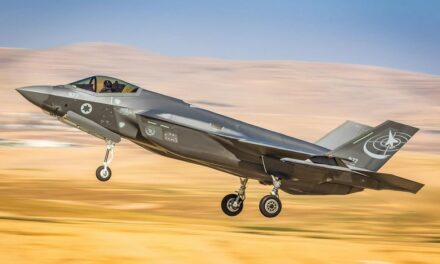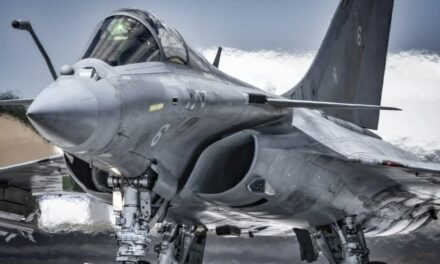We support our Publishers and Content Creators. You can view this story on their website by CLICKING HERE.
Key Points: In 2020, the US Marine Corps retired its tanks, marking the end of a century-long role. The move, ordered by Commandant General David H. Berger, reflects a strategic shift toward naval warfare and longer-range missile systems, emphasizing light, expeditionary capabilities to address potential conflicts in the Indo-Pacific.
-Tanks and some artillery units were transferred to the Army, sparking debate about the Corps’ evolving role.
-Critics argue the loss diminishes versatility, while supporters highlight redundancy and the need to adapt to modern threats. The formation of Marine littoral regiments symbolizes the Corps’ pivot toward countering China’s regional ambitions.
Marine Corps Tanks Transferred to Army in Strategic Shift for Indo-Pacific
In 2020, the US Marine Corps began removing tanks from their inventory. The Marine Corps, who had started using tanks during the Great War in 1917, first received their tanks in the 1920s, meaning the decision to remove tanks from the Marine Corps inventory marked the conclusion of a one-hundred-year arrangement. The Marines’s tanks are being transferred to the Army.
Explaining the decision, Commandant General David H. Berger said that the Marines’ job is to be light and expeditionary, while the Army’s job is to be big, heavy, and lethal – meaning, it is the Army’s job to operate tanks.
“Army is huge,” Berger said. “We need a big Army. They win our wars. The Marine Corps doesn’t win the wars. We win the battles.”
So, was transferring Marine tanks to the Army a good idea? Let’s consider.
No More Tankls for the Marines
The decision has been met with some controversy, with some “retired Marines and others in defense circles questioning the change” as “an overreach that would diminish the Corps’ versatility – a selling point for the service for much of its modern existence,” the Marine Times reported.
MARINE CORPS BASE HAWAII, Hawaii (July 6, 2022) U.S. Marine Corps Pfc. Darrel Ebaugh, a scout sniper with Weapons Company, Battalion Land Team, 3d Battalion, 4th Marine Regiment, Marine Air-Ground Task Force 7 (MAGFT-7), sights in on a target during a live-fire sniper range in support of Rim of the Pacific (RIMPAC) 2022, on Marine Corps Base Hawaii, July 6, 2022. Twenty-six nations, 38 ships, four submarines, more than 170 aircraft and 25,000 personnel are participating in RIMPAC from June 29 to Aug. 4 in and around the Hawaiian Islands and Southern California. The world’s largest international maritime exercise, RIMPAC provides a unique training opportunity while fostering and sustaining cooperative relationship among participants critical to ensuring the safety of sea lanes and security on the world’s oceans. RIMPAC 2022 is the 28th exercise in the series that began in 1971. (U.S. Marine Corps photo by Lance Cpl. Brayden Daniel)
The impetus for the decision was the push to recalibrate the Marines towards a naval warfare footing. The recalibration, in addition to the divestment of tanks, will also include a reduction in cannon artillery – in exchange for an increased emphasis on longer-range missiles.
The reason the Marines are recalibrating towards a naval warfare footing China. Any sort of confrontation with China is likely to be centered in the Indo-Pacific region, which will require a strong naval presence.
The Marines are joining their other service branches in recalibrating for a conflict with China, and away from a landlocked conflict on the Eastern European plains or the Middle Eastern deserts.
Within the Corps, the shakeup is “leading to an entirely new formation, the Marine littoral regiment, which will hold infantry, artillery, logistics and an anti-air battery.”
Maintaining Relevance for Marines
The divestment of tanks to the Army raises an age-old question about the relevance of the Marines.
An argument has persisted for decades that everything the Corps does could be done by another service branch (The Army has infantry and armor; the Air Force has fighters and ground-attack jets; the Navy has all manner of surface and subsurface vessels).

CAMP HANSEN — Lance Cpl. Zachary A. Whitman, a shooter with the III Marine Expeditionary Force detachment, familiarizes himself with the M27 Infantry Automatic Rifle in preparation for the Australian Army Skill at Arms Meeting 2012. AASAM is a multilateral, multinational event allowing Marines to exchange skills tactics, techniques and procedures with members of the Australian Army as well as other international militaries in friendly competition. (U.S. Marine Corps photo by Sgt. Brandon L. Saunders/released)
The divestment of tanks implicitly supports the idea that other branches can do, and do, in fact do, the Marine Corps job.
Of course, the counterargument is that the Marines offer a versatile, tactical, amphibious option. The merits of that counterargument may be tested as the US shifts its focus towards the Indo-Pacific.
As for the merits of the decision to divest tanks, the decision does seem intuitive. The Army operates tanks.
The Corps tank units were arguably redundant and cumbersome.
Time will tell whether they will regret the decision, but on paper, the decision seems reasonable.
About the Author: Harrison Kass
Harrison Kass is a defense and national security writer with over 1,000 total pieces on issues involving global affairs. An attorney, pilot, guitarist, and minor pro hockey player, Harrison joined the US Air Force as a Pilot Trainee but was medically discharged. Harrison holds a BA from Lake Forest College, a JD from the University of Oregon, and an MA from New York University. Harrison listens to Dokken.

 Conservative
Conservative  Search
Search Trending
Trending Current News
Current News 





